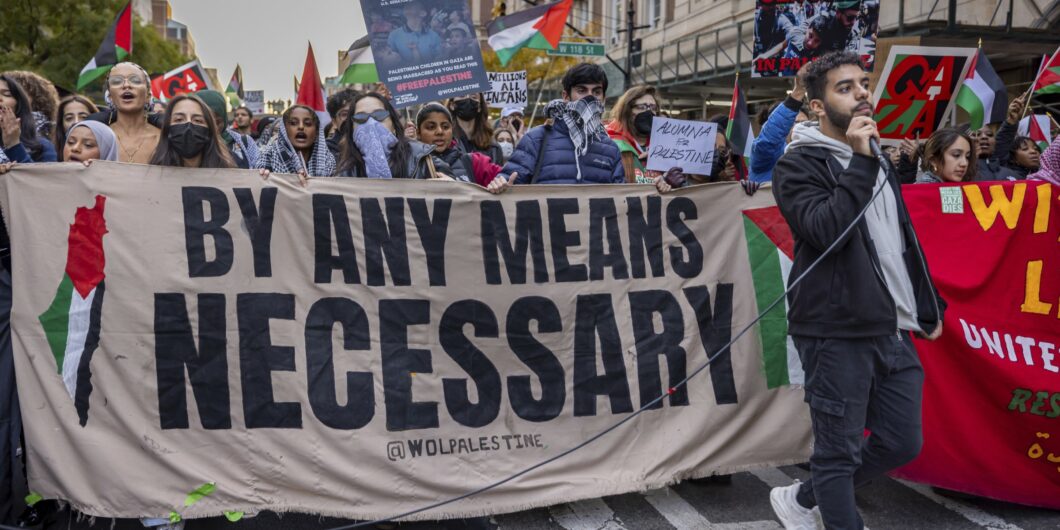Universities claim that certain groups are "underrepresented" on their campuses. This claim needs scrutiny.
Addressing the Rot in Our Universities
The reactions at universities to Hamas’ October 7 massacre have finally awakened many alumni, forcing them to recognize the woke takeover of their alma maters. Many university presidents who had issued statements deploring racial incidents in the United States and events around the world were initially silent about the greatest mass slaughter of Jews since the Holocaust. Others issued vague platitudes of concern about violence. Some elite university students, who during the George Floyd riots cried out that silence was violence, welcomed actual violence, celebrating the massacre as part of Palestinian resistance.
Not surprisingly, there was a backlash from many donors who suggested they would withhold their gifts. As a result of the threat to their bottom line, the universities then put out some more muscular statements condemning Hamas. They created task forces against antisemitism on campus. Some expressed concern about student slogans that favored a Free Palestine spanning from the Red Sea to the Jordan River, leaving no space for Israel and the Jews who lived there.
Unfortunately, these actions treat the symptoms rather than the causes of the ideological miasma that has enveloped our universities. Indeed, by buying into the paradigm of the politically active university and further empowering it, political statements by universities and their appointment of task forces based on identity will make things worse in the long run.
The naïve might wonder why universities need to set up special task forces on antisemitism, when they all have established Offices of Diversity, Equity, and Inclusion, supposedly dedicated to protecting minorities. Do these offices not have ample personnel to take on new issues of the moment? The answer is that most DEI offices cannot be trusted to focus on antisemitism, particularly when it is connected in any way to Israel.
Many DEI offices prioritize a particular ideology—that of intersectionality—which analyzes how various identities contribute to the construction of the oppressed and oppressor. Through that prism, Jews do not fit into the oppressed class, but rather are placed in the oppressor class of privilege. Indeed, Jews are seen (correctly) as one of the groups that built Western Civilization. And from the identitarian perspective, Western Civilization is at best complicit in the harms that have been visited on various groups—women, Blacks, and gays, among others.
That an event in Israel furnishes the context for the rise of antisemitism makes it that much harder for DEI offices to become the locus of a response. Part of the DEI outlook is anti-colonialist, and Israel is seen by the left as a colonial power with the Jews taking the lands of the Palestinians.
In short, the DEI offices often have an ideology that cannot give priority to antisemitism. As a colleague told me, in his experience, DEI offices will always put the worst interpretation on any remark that may conceivably offend a minority—unless the remark is about Jews, and especially Israelis. In that case, they will put an innocent interpretation on even the most offensive remark.
Nevertheless, it is a mistake for universities to create new task forces and bureaucracies focused on antisemitism because they accept the identarian premises of modern university life. Violence, threats of violence, obstruction of others’ speech, or disruption of a college’s administration have no place in university life and should be punished by swift and severe penalties, no matter the target. In contrast, speech, even if hurts the feelings of others, needs to be protected. No government can be trusted with making content-based determinations about speech, and neither can the modern university. Like governments, they are subject to interest group pressures that distort the application of principle.
For similar reasons, it is a mistake to ask universities to make statements about outside events. To be sure, the decision not to issue a statement about the massacre of Jews after making so many other statements on previous events was inconsistent and should have been called out. But the better course going forward is to eschew any statement about current events, adopting the University of Chicago Kalven principles that limit such statements to matters that directly affect the operation of the university. Political statements by universities force administrators into line-drawing that will not appear principled. For instance, if it is proper for a university to issue a statement about the massacre of Israelis, was it right to be silent about the displacement of a hundred thousand Armenians in the Nagorno-Karabakh takeover? Worse still, the relative numbers and power of groups on campus will inevitably influence the zigs and zags of university intervention and inaction. Silence is only the principled stance.
In fact, the university advances its chief function precisely by not taking positions. Its comparative advantage lies in the ability to diffuse knowledge, not to draw political lines. To be sure, over time, one can hope that more knowledge will help others to draw better moral and political lines. To facilitate that diffusion, colleges of arts and sciences can offer more courses on the Israeli-Palestinian conflict. Law schools can have panels investigating the international law rules relating to current battles. Individuals are then left to draw their own descriptive, pragmatic, and moral conclusions. This approach accentuates the epistemic openness that should be the hallmark of the university and its unique role in transcending partisan and ideological differences in a search for truth and understanding.
Even the elimination of DEI will not be enough to sustain epistemic openness at most universities.
But adopting the Kalven principles is not enough to reform the modern university, because its bureaucracy and faculty do not facilitate epistemic openness. DEI departments must be disbanded. They undermine the epistemic openness of the modern university by importing into it a preferred ideology—an intersectionality that is hostile to Western civilization.
Thus, the inability of these offices to address antisemitism should prompt a renewed effort to end their role in college life. Indeed, any trustee who has been appalled by the reaction to the Hamas massacres should take a cue from Roman history. Just as the elder Cato ended every speech with the conclusion that Carthage must be destroyed to safeguard the republic, so should the trustee end every speech with the conclusion that DEI must be administratively dissolved to safeguard the modern university.
DEI bureaucracy is particularly vulnerable after the affirmative action decision in SFFA v. Harvard. One reason for its rise has been the inevitable tension created when some identifiable groups are admitted on the basis of lesser credentials than others. The groups with lesser credentials predictably do not do as well on average and become understandably unhappy and sensitive to perceived slights on campus from other groups. DEI offices are designed, among other things, to manage this conflict. But in a world where all are admitted under more similar standards, such university-created conflicts between different groups should subside.
Even the elimination of DEI, however, will not be enough to sustain epistemic openness at most universities. Many departments in the arts and social sciences have also become intellectually orthodox proponents of intersectionality and anti-Western ideology. Departments often claim that they do not ask about the political views of applicants. But they do not have to interrogate partisan political opinions to screen out conservatives. The locus of the dominant academic conversations does the screening for them. For instance, in the History Department at my university, 22 of the members of the Department specialize in “gender and sexuality” approaches to history. Candidates who want to focus on more traditional methods and areas of inquiry will be at a decisive disadvantage. It is hardly any wonder that a famous American historian once told me that this department no longer has anyone that he believes can teach an intensive history of the American Revolution and the early republic—the foundation of our political order.
Most university departments, therefore, are now under the control of professors who are very unlikely to hire scholars interested in non-radical perspectives on their disciplines (let alone conservatives). The solution for donors, though, is not to withhold all donations but to use their money to create new colleges or units within universities that will hire professors without prejudice. Trustees and presidents have the authority to set up new centers or colleges within a university and to appoint academically qualified people who will not engage in discrimination. We have excellent examples of such centers and colleges: the James Madison Program at Princeton, the Hamilton Center at the University of Florida, and the School of Civic and Economic Thought and Leadership at Arizona State.
No discrimination in favor of conservatives will be needed for these centers to become far more balanced and epistemically open places of learning than our current universities. Many of the most qualified applicants will be those who have been frozen out of academic life or relegated to marginal institutions by previous discrimination against their views, interests, or methodologies.
Universities today are at a crossroads. Externally, they are losing support among the public. Internally, they cannot perform their primary function of sifting and diffusing knowledge because of the intellectual orthodoxies that have seized control of administrations and inspired the faculty. The massacres in Israel and the response on our campuses might spark reform of these essential institutions, but only if they decisively break with the identity politics and bureaucracies that have led them to their present state.



